SEC-S20W2 | 1st Half: Hot liquid and solid starters.
Steem greetings to all the foodies on the platform and welcome to my blog as I share ideas about hot liquid and solid starters. It is indeed an amazing opportunity for us to learn some new terminologies in the gastronomy course.
That said, my favourite among the hot starters is the hot liquid starters. They have a savoury taste that each time I eat them, I always crave more. I so much love spicy foods and hot liquid starters are a perfect example for me to eat.
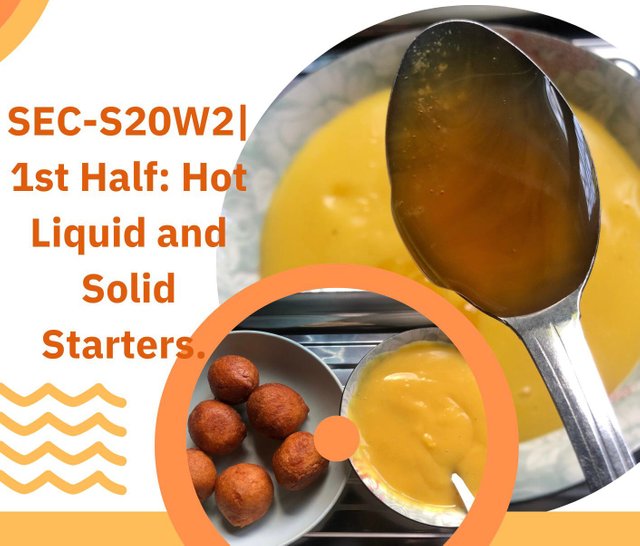
The hot liquid starters are best for women who have just given birth. According to my tradition, hot liquid starters will help boost the strength of the mother and also help the breast milk flow well.
Have you prepared a hot liquid or solid starter for any menu?
I often prepare hot liquid starters for my kids and it is best for them to eat before going to school as the early morning temperatures are extremely cold. They are also my favourite and I often prepare it.
I also prepare it during funerals in my village. Early in the morning, mourners needed something hot to warm up their systems. My village is extremely cold and the hot liquid starters are a perfect start for the day.
We would like you to prepare 1 type of starter (quantity for 1 person) of those explained in this course (hot liquid or hot solid). It is important to explain the preparation process and present it in an appropriate way for a starter.
For this assignment, I will be preparing what we locally call “pap”. It might differ from what other tribes refer to as pap but for us in Cameroon, pap is a hot liquid starter. My process of preparing it might differ from others but the good thing is we all have different methods of preparing it.
Ingredients Required.
- 2 tsp Special corn flour
- 4 scopes of Milk
- 1 tsp of Soya beans
- 1 and a half cups of Water
- 1 tsp of natural honey
The Process of Preparation.
-I started by putting 1/2 glass of water in a pot and boiling it at 212°F.
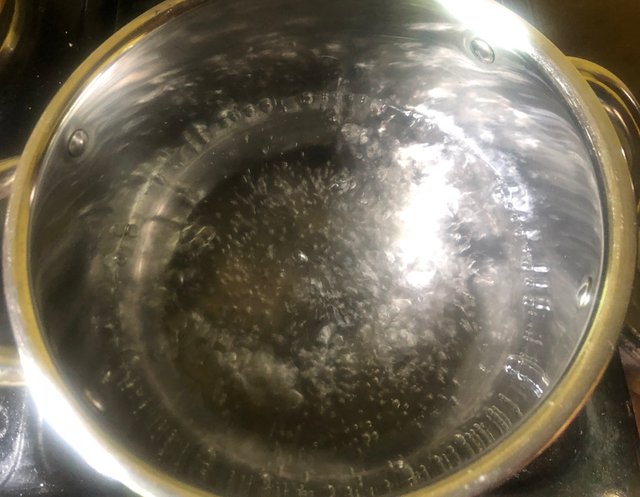
-While the water is boiling, I measure 2 tsp of the special corn flour processed with eggs and milk in powder form.
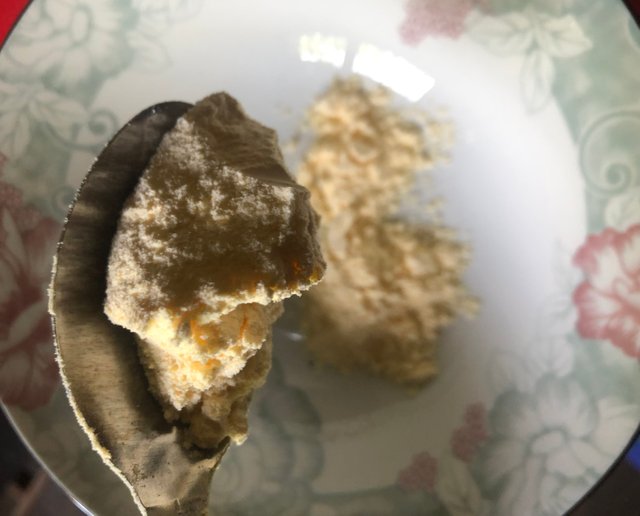
-Put 1 tsp of soya bean milk in the already-measured corn flour. Mixed the two well to get a uniform texture.
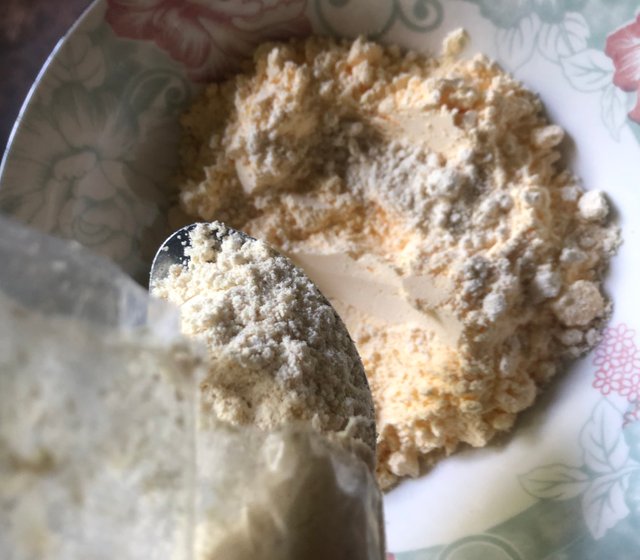
-Add 1 glass of water to the mixed corn flour with soya bean milk. Stir until it dissolves. This is to prevent it from a clot.
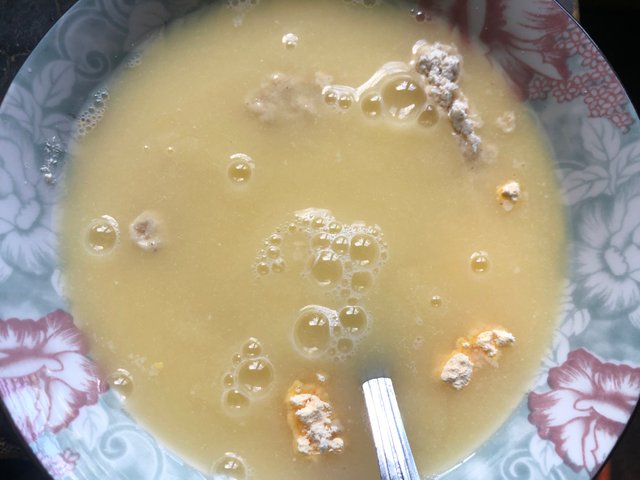
-Pour the mixture into the already boiling water and stir slowly for about 3 minutes and it's ready to serve.
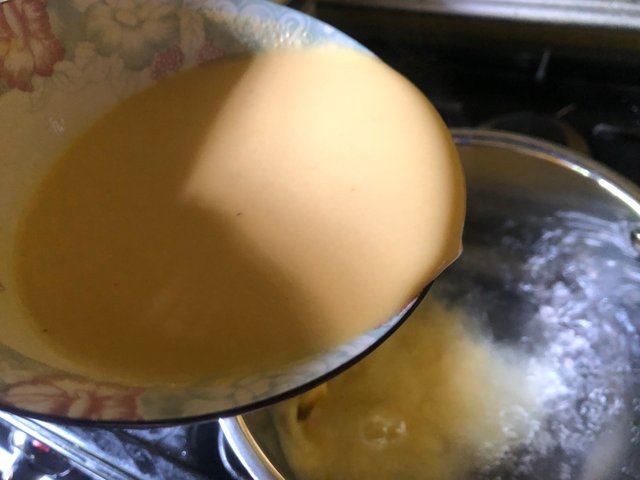
-You might want it sweet and therefore you add your sweeteners. For me, I added 1 tsp of natural honey. Stir of gently for the honey to mix onto the pap. Your pad is ready to eat.
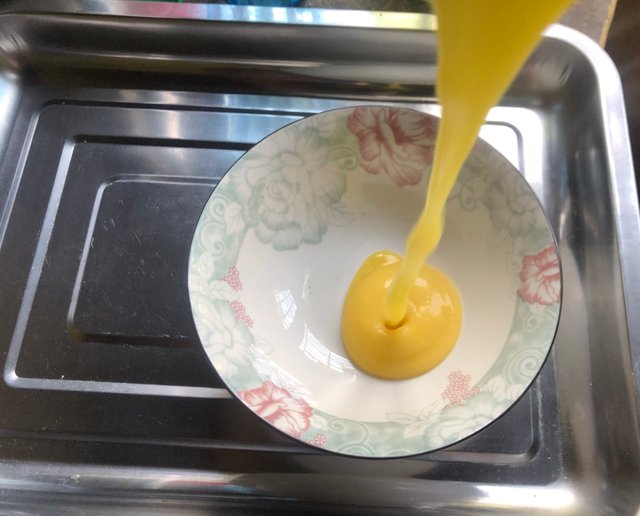
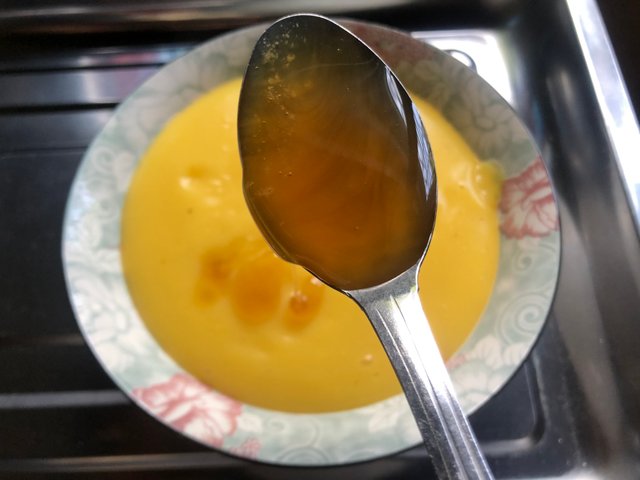 Pap served with added a spoon of natural honey.
Pap served with added a spoon of natural honey.
What cooking method did you use to prepare your starter?
The cooking method I used was the moist heat cooking method. As I earlier mentioned, the hot liquid starter requires boiling water at 212°F which will be used to boil the other ingredients.
The moist heat cooking method is healthy and does not required addition of fat or or oil in it.
Which main dish and which dessert would go with the starter you just prepared? Imagine a 3-course menu that goes with your starter.
Just imagine my 3-course meal with the hot liquid starter as pap, the main dish boiled white yam with vegetable soup and the dessert as vanilla sponge cake with an apple. Note that the images of the main dish and dessert were not prepared today. Using them for the imaginary 3-course meal.
-The Starter was pap and at times served with puff puff fries or even bread. In Cameroon most people take heavy starters due to the type of jobs we do that require lots of energy and strength. Eating just the pap cannot sustain you for long before the main dish of the day.
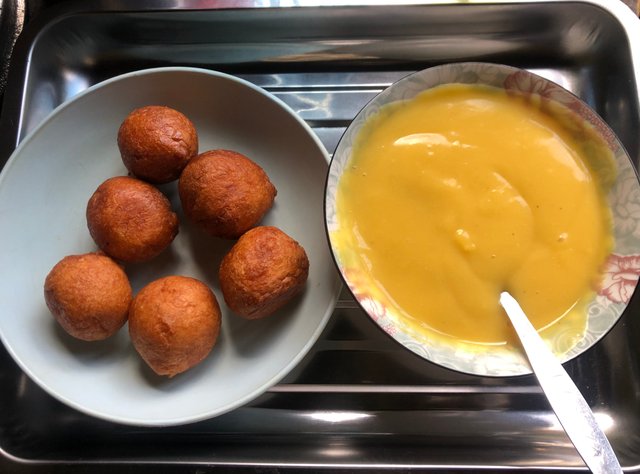
-The main dish that will go with my starter is boiled white yam and vegetable sauce known as okonghobong cooked with pumpkin seeds. This is just a representation of the 3-course meal with the starter just for the purpose of the challenge.
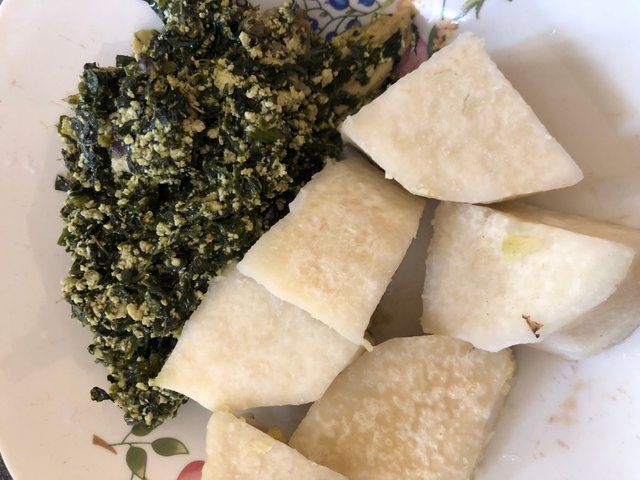
-For the desert, I will imagine eating vanilla sponge cake accompanied with an apple.
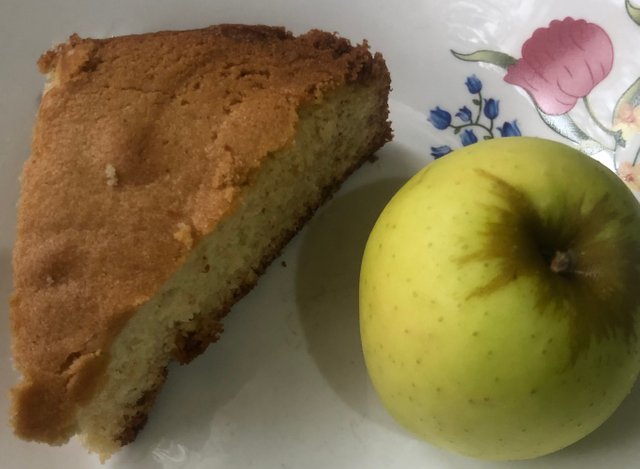
In sum, starter dishes in Cameroon differ from region to region and are also based on the kind of activities carried out daily. In my region, the Northwest, most people go with heavy starters which can sustain them till the main dish time. This course has enlightened me about hot and liquid starters and I will definitely put it into practice.
I will invite @m-fdo, @aviral123, @ruthjoe and @inspiracion to share ideas about the hot liquid and solid starters course.
